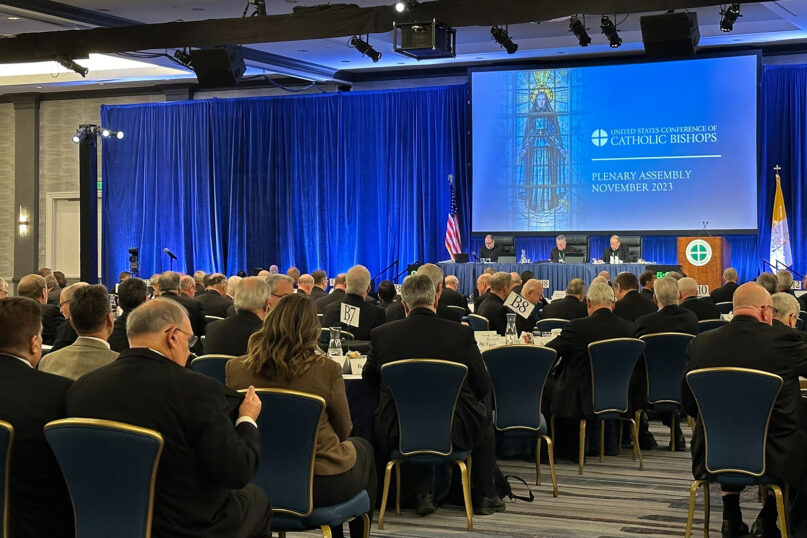(RNS) — Last week, the normally mild-mannered Peter Steinfels — sometime New York Times religion reporter and longtime Catholic public intellectual — took a metaphorical two-by-four to the U.S. Conference of Catholic Bishops.
Writing in Commonweal, the lay Catholic magazine he once edited, Steinfels denounced the bishops for failing to address the threat to democracy posed by Donald Trump in the latest iteration of their quadrennial guide for Catholic voters, “Forming Consciences for Faithful Citizenship.”
After reciting a litany of Trump’s threats to the system, from his denunciation of the judges and prosecutors handling his civil and criminal trials to his promise to use the Justice Department to enact retribution on his political enemies should he earn a second term, Steinfels asks:
Have the bishops shrugged all this off as routine campaign rhetoric? Do they brush aside a track record, now verified by former aides, of his disdain for legal norms? Do some bishops even sympathize with his outlook? Have any contemplated the strain of the coming election on our social fabric, on our faith in law and democracy, and even on many people’s ties to the nation’s Christian churches, including the one the bishops lead? Have they contemplated the possible ramifications of another presidential election decided by a minority of voters amid volleys of accusations of fraud and “rigging,” let alone election of someone convicted in a criminal trial?
You go, boy!
Let it be noted that the bishops did manage to update “Forming Consciences” by adding a few words lamenting that “much of our political rhetoric has become very negative and that political polarization seems to have grown.” Steinfels points out that that kind of falls short of the alarm expressed by Pope Francis that “we are witnessing a retreat from democracy” (pope’s emphasis).
As has been the case since the voter guide was first issued in 2007, and notwithstanding the Supreme Court’s reversal of Roe v. Wade, the “threat of abortion” remains the American bishops’ “preeminent priority.”
Rest assured, the bishops have announced a full revision of “Forming Consciences” after the 2024 election. By then, of course, it may be too late to save democracy in America. Still, while they’re at it, maybe they could take a crack at saving the planet.
“Forming Consciences” doesn’t exactly ignore the climate crisis. In the 43-page document there’s a paragraph about “care for creation” in a section on The Common Good, as well as a section on Care for Our Common Home that devotes half its attention to denouncing “demeaning and sometimes coercive population control programs.”
By contrast, in his message to the COP 28 conference in Dubai this past weekend, Francis called “care for creation” and peace “the most urgent issues, and they are closely linked.” The remedy for climate change, he declared, “is good politics: if an example of concreteness and cohesiveness comes from the top, this will benefit the base, where many people, especially the young, are already dedicated to caring for our common home.”
I’d take this as a recommendation for his top guys in America to push climate to the top of their political agenda. Maybe even make it a preeminent priority. Along with democracy, of course.






